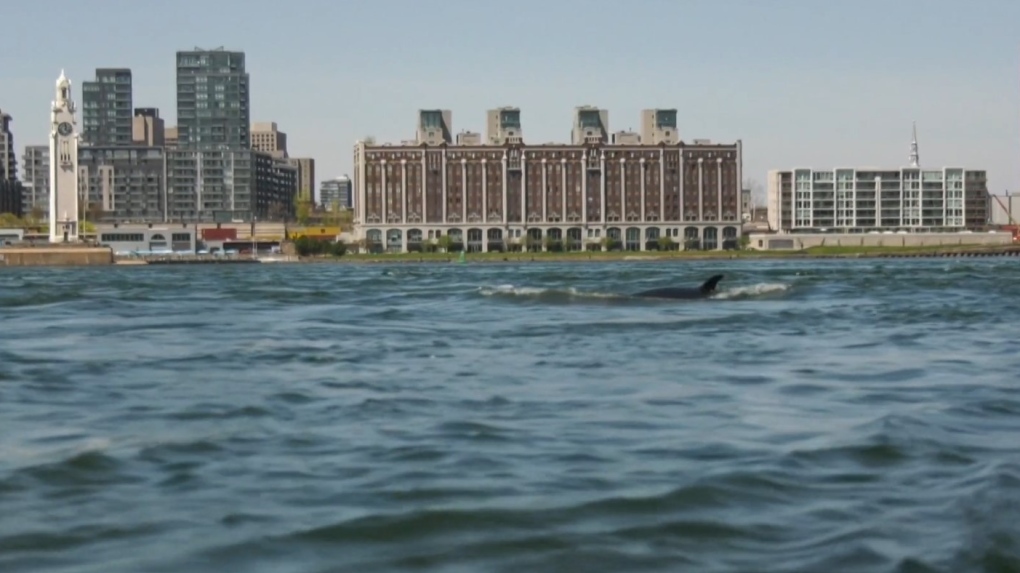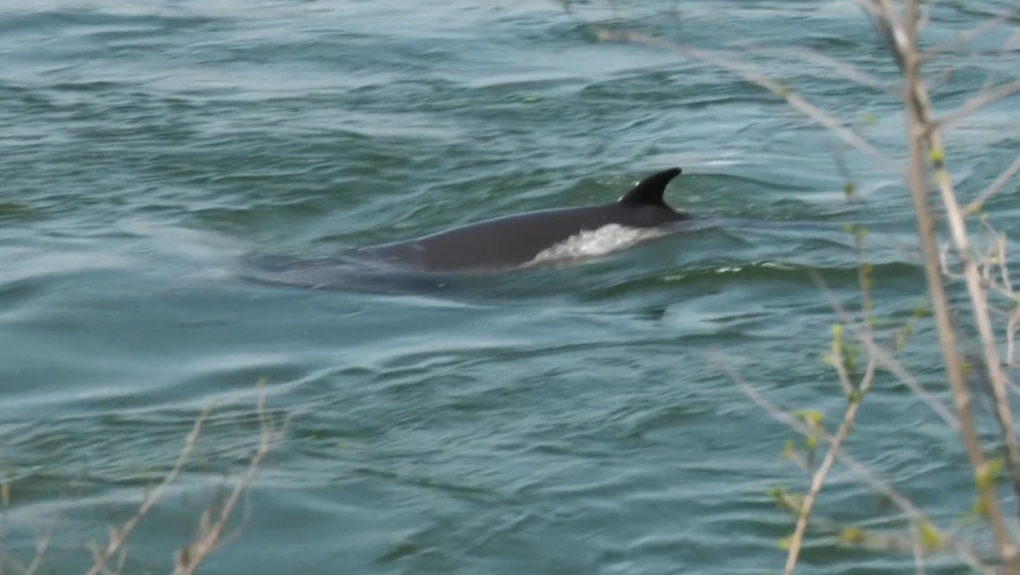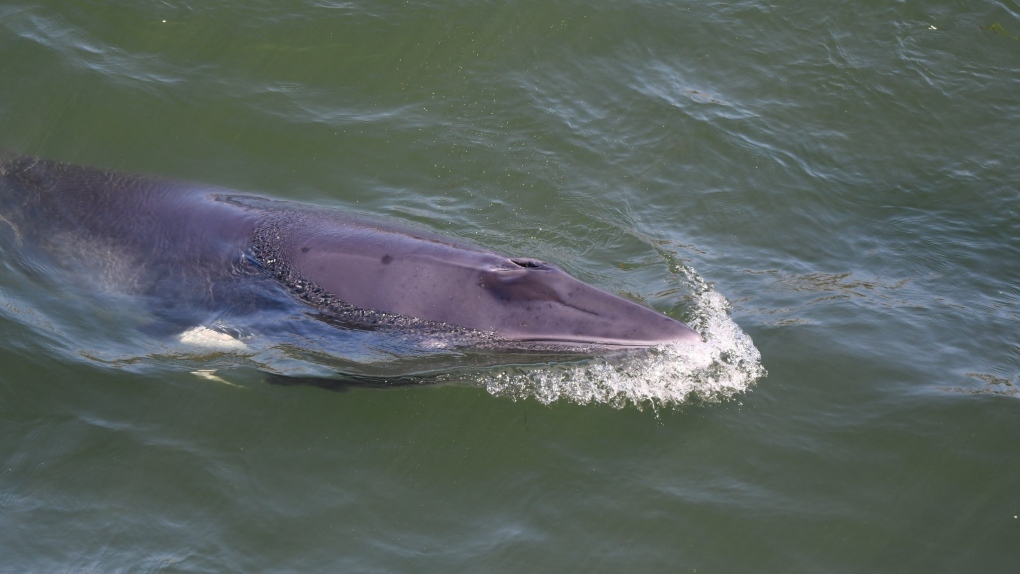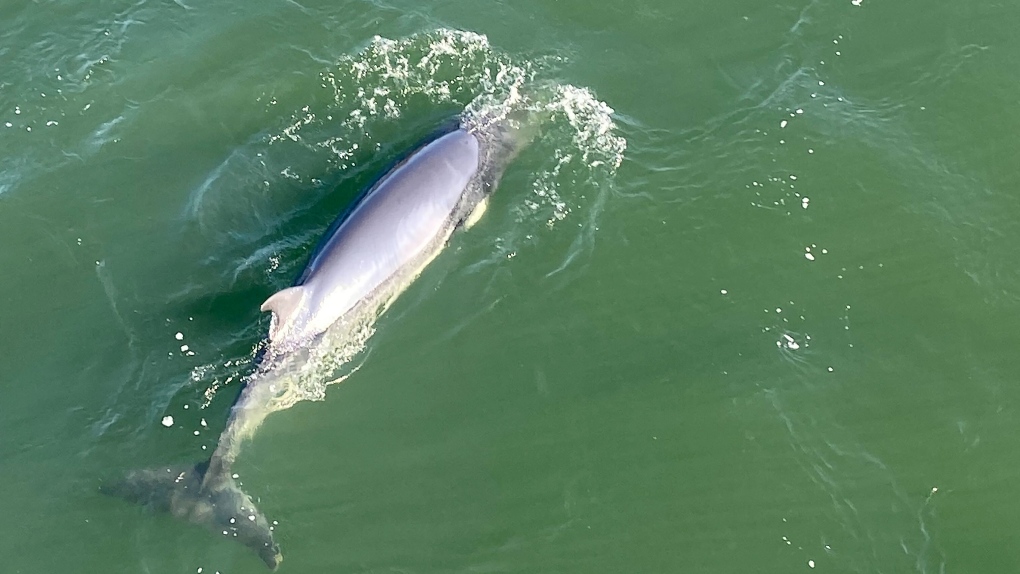
Concerns for whale in Montreal

Spotted: Minke whale in Montreal's Old Port

New video: Minke whale spotted in Montreal

Man spots whale near Montreal
Stephane Blais
The Canadian Press
Staff
Contact
Published May 11, 2022
There appears to be little that humans can do to help the minke whale that has been spotted in the St. Lawrence River near Montreal find its way back home. Here are five things to help understand the situation:
THE WHALE'S ARRIVAL
Robert Michaud of the Reseau quebecois d'urgences pour les mammiferes marins said the whale was first seen on Sunday near the city's Parc Jean-Drapeau. The whale is about 450 kilometres upstream from its natural habitat, but Michaud said the plan is not to try to rescue it.
His network, which works to protect marine mammals in the St. Lawrence River, only considers intervening in certain situations, such as when an endangered species is involved -- which is not the case with minke whales -- or when a whale is threatened by human activities, such as entanglement in fishing gear.
RELATED STORIES
WHAT WE KNOW ABOUT MINKE WHALES
The minke whale can reach almost eight metres in length as an adult. Michaud said the Montreal whale, which was spotted again on Tuesday, hasn't been observed long enough to assess its size, although it seems to be young.
"These animals usually live in salt water," Michaud said. "If they are exposed to fresh water for a long time, they can develop physiological problems. The less time it stays in Montreal, the better its chances of survival."
Michaud explained minke whales migrate during the spring and summer to the Saguenay-St. Lawrence Marine Park, which is home to hundreds of marine species. Minke whales usually stay in the area to feed before returning to the Atlantic Ocean in the fall.
PAST ENCOUNTERS
This is not the first time in Quebec a whale has strayed from its natural habitat. A humpback whale spent several days near Montreal's Old Port in 2020. Despite its apparent good health, that whale was later found dead, and a necropsy suggested the 10-metre-long animal may have been hit by a boat.
Michaud said his team receives about 700 calls a year for situations involving endangered or dead animals.
"In every species, there are animals that once in a while venture out," said Michaud, noting that in 2012 a beluga spent a few weeks in the water off Montreal's Old Port before leaving.
WHEN TO RESCUE LOST WHALES
Michaud said his team has decided to intervene in specific cases only. "For example, if a whale is caught in a fishing net," he said.
Interventions can also occur if the animal is becoming a threat to humans. Michaud referred to situations where seals wandered onto a highway, a schoolyard and an airstrip in Quebec.
HOW TO INTERVENE
Michaud said the techniques that could help get the whale back to its natural habitat all have risks. In some cases, sounds have been used to repel or attract an animal, but he said they have been very ineffective. He said one attempt to scare away a humpback whale with loud sounds caused the animal to start breaching before it beached itself.
Nets have been used for belugas, narwhals and dolphins but very rarely with large whales, and Michaud said all netting techniques carry risks.
"Do we want to play God and save all the animals that are in trouble to have a clear conscience?" the researcher asked. "There are animals that die every day; it's normal. It's sometimes hard for humans to accept, especially for urbanites."
-- This report by The Canadian Press was first published on May 11, 2022.

A whale is seen in the waters of the St. Lawrence River, near Montreal, Monday, May 9, 2022. A marine mammal group said a minke whale was first spotted near the city's Parc Jean-Drapeau on Sunday.
THE CANADIAN PRESS/Morgan Lowrie
No comments:
Post a Comment